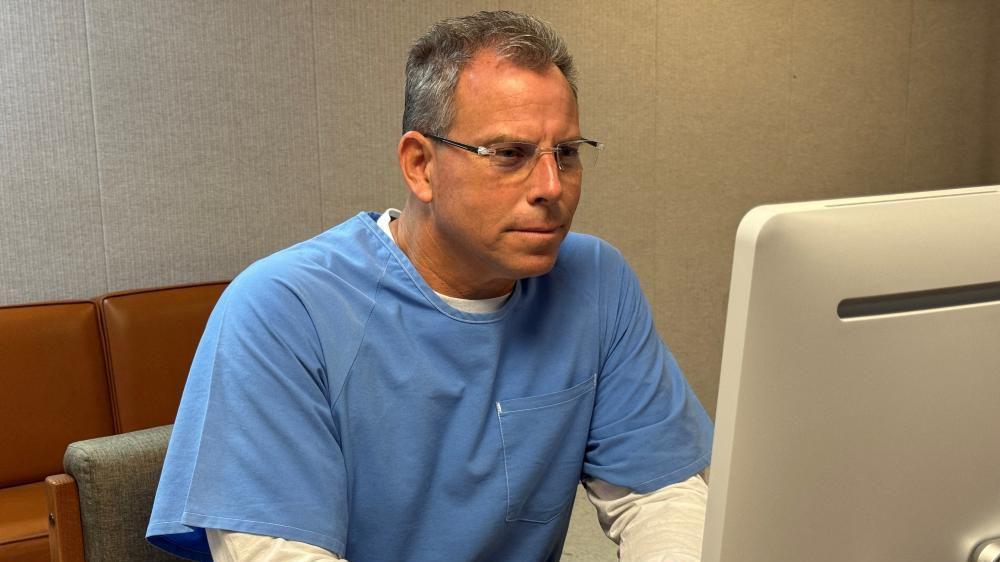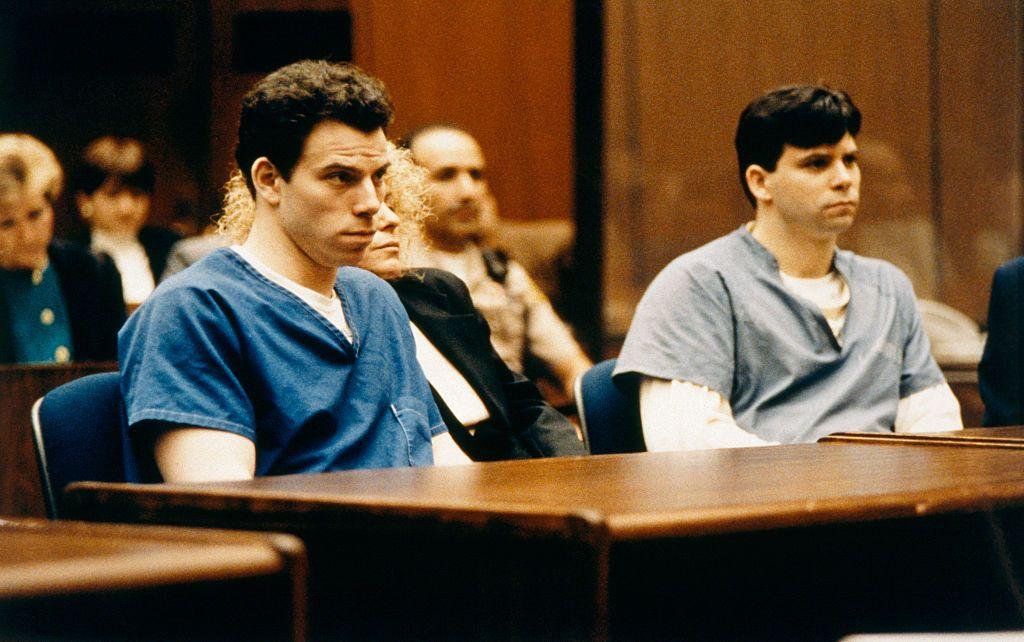A Penitentiary Board on Friday rejected the probation of probation of Lyle Menéndez, who together with his brother Erik fulfills a sentence of at least 50 years in prison for the murder of his parents that occurred in 1989.
On Thursday they had denied probation to Erik Menéndez, whom they cataloged as a person who represents a “moderate” risk for society.
Both brothers had met the requirements to obtain the benefit after a judge imposed them a new conviction last May of a minimum of 50 years in prison. Initially both had been sentenced to life imprisonment without the possibility of probation.
The brothers have spent 35 years in prison in California due to the shot murder of their parents in the family mansion of Beverly Hills in 1989.
They may re -request probation in the future, according to the Penitentiary Board.
The Menéndez still hope that the governor of California, Gavin Newsom, considers the request for pardon of their lawyers.
This could give them a reduction in penalty or even forgiveness, but I would not cancel the guilt of the brothers. To pronounce on such a media and controversial case, however, it could be politically risky for Newsom, who is considered a possible candidate for the US presidency for the 2028 elections.
In addition to probation and pardon, the brothers have also requested a new trial due to the appearance of new evidence in the case. A judge is studying the request, but the prosecution of the Los Angeles district opposes it.
What happened in the audiences?
At the audience this Friday, which lasted for more than 10 hours, Lyle Menéndez said he regretted “who was … for the damage they have all suffered.”
“I can never compensate for the damage and pain that I caused to all the members of my family. I am very sorry for everyone and I will regret it forever,” he said.
However, its regret was not enough for the Board.
Considered for a long time the dominant brother, Lyle initially told the Police that he believed that his parents’ brutal deaths had been a work of the mafia. He also invented elaborate stories in which he involved people who lied for him to cover up his participation in crimes.
This Friday the members of the Board repeatedly mentioned the illicit use by Lyle of a cell phone in prison, which, they said, seemed to have had almost constant access for years.
Commissioner Patrick Reardon, a member of the Board, questioned whether they should give so much importance to all the positive things Lyle did in prison, such as his education and the programs he created for other inmates, when he constantly violated the standards.
The panel said he declared himself guilty of an infraction related to the use of the cell phone in March this year.
Although he had a tablet that allowed him to use, Lyle said he kept using the cell phone because he gave him more privacy.
Mobile phones are prohibited in prisons and are considered as corrosive as drugs for the penitentiary environment, due to the concern that they can encourage criminal activities, such as drug trafficking, witness intimidation and even the organization of leaks. All prison communications are monitored, except the conversations between lawyer and client.

On Thursday, Erik Menéndez also appeared before another Board virtually from the San Diego prison where he is held with his brother.
During the audience, which also lasted almost all day, the Board asked him about the murders, his relationship with his parents and his attempts to cover up his guilt.
In some sections he was excited to describe the moment in which he shot his parents, José and Kitty Menéndez with a shotgun, while watching television in his Beverly Hills mansion.
The brothers fired more than a dozen bullets and Erik even recharged the gun and continued shooting their mother. Both have long alleged that it was in self -defense, since they were being sexually abused by their father.
“I just want my family to understand that I deeply regret what I have made them happen from August 20, 1989 to today,” Erik said during the audience before knowing his destiny.
“If I ever have the opportunity to recover freedom, I want healing to be for them,” he said. “Do not think that it is my healing, but about family healing. This is a family tragedy.”
The Board asked him about his prison stay and his legal problems before the murders, including his participation in two robberies. He said his prison stay helped him develop a “moral barrier.”
The panel also examined factors such as Erik Menéndez’s health and if he would be a danger to society if he left prison. A risk assessment carried out on him concluded that he would mean a “moderate” risk if he were released.
They reviewed education and positive programs in which he had participated in prison, along with the offenses he had committed while he was imprisoned, including fights in prison and having been found multiple times with smuggling.
While he was behind bars, he got into trouble having a cell phone, art and tobacco materials, which he had hidden inside a religious book.

A coalition of relatives, who have been advocating for the liberation of the brothers, and supporters also spoke to the Board, testifying that Erik had changed during their long sentence.
Teresita Menéndez-Baralt, sister of José Menéndez, broke down to cry while talking to the Board telling them that he had forgiven Erik for killing his brother and for the years of trauma that caused his family.
He said he is dying of cancer.
“The truth is that I don’t know how long it has left. If Erik is granted probation, it would be a blessing,” he said. “I hope to live enough to welcome my house, sit at the same table, hug him … that would give me an immeasurable peace and joy.”
One of the “judgments of the century”
The media trials to the brothers were followed with attention in the US in the 90s.
During the trials, the brothers alleged that the murders were in self -defense and said they had suffered years of emotional and sexual abuse at the hands of their parents.
However, prosecutors argued that they were greedy and privileged monsters who meticulously planned the murders and then lied to the authorities that investigated the case while spent $ 700,000 from the inheritance of their parents in purchases that included a new Porsche, a Jeep and Rolex watches.
They were not arrested until the police learned of their confessions to a psychologist.
Three decades later, the case was publicly reexamined thanks to a combination of new tests, a viral video chain in Tiktok, the Netflix dramatic series and the intervention of several celebrities.
But the courts did not act until the former general of Los Angeles re -examined the case and asked a judge to impose a new sentence, citing California’s evolutionary approach towards youth criminals and abuse survivors.
A change in state legislation allows criminals who were less than 26 years old at the time of crime to be sentenced as minors instead of as adults. Lyle was 21 years old and Erik 18 when they killed her parents.
Although the new prosecutor of the Los Angeles district, Nathan Hochman, opposed the review of the sentence, in May a judge reduced his sentences between 50 years and perpetual chain with the possibility of probation.
Hochman accused Erik of continuing to “show narcissistic and antisocial features” and his office strongly opposed the courts to the release of both him and Lyle.

Click here To read more BBC News World Stories.
Subscribe here To our new newsletter to receive every Friday a selection of our best content of the week.
You can also follow us in YouTube, Instagram, Tiktok, X, Facebook And in our new WhatsApp channel.
And remember that you can receive notifications in our app. Download the latest version and act.
